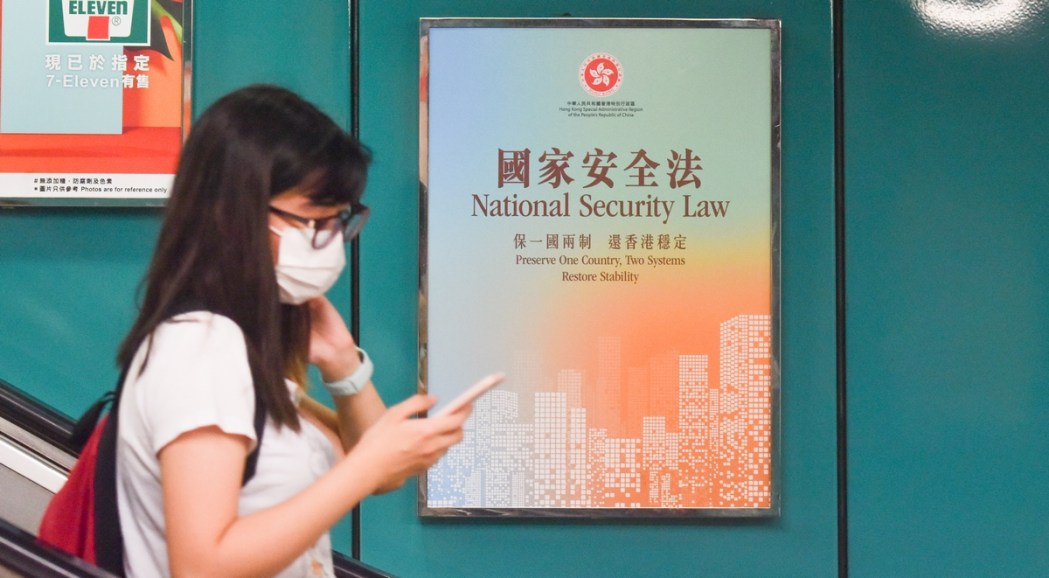What Hongkongers wanted was to achieve the five demands popularised during the protests and unrest in 2019, not for lawmakers to veto the budget in the legislature, the ex-chief of a grassroots political party has. He was testifying during the landmark national security trial involving 47 pro-democracy figures.

Sze Tak-loy, the former chairperson of the Hong Kong Association for Democracy and People’s Livelihood (ADPL), took the stand on Thursday. The prosecution began their cross-examination of Sze after the defence completed its questioning.
The case centres around an unofficial primary election held in July 2020, which aimed to help the opposition camp win a controlling majority in the Legislative Council. The democrats have been accused of planning to use their legislative powers to indiscriminately veto the budget, eventually forcing the chief executive’s resignation and a government shutdown.
Sze was among the candidates of the primary election alongside other ex-lawmakers, District Councillors and activists.
In court, the prosecution said Sze had signed an online declaration titled “Resolute Resistance, Inked Without Regret,” which stated that the primary participants would use their power as lawmakers to veto the government’s budget. He had also said he would veto the budget in an election forum in July 2020.
Sze, however, told the court he would not do so if he were elected.
“So you told lies to the public in the forum?” prosecutor Jonathan Man Tak-ho asked.

“It’s not a lie. The aim is to fight for the five demands,” Sze said, adding that voting down bills was a “negotiation strategy” to bargain with the government.
The five demands were: withdrawing the controversial extradition bill that sparked the demonstrations; having an independent investigation into alleged use of excessive force by police; retracting the characterisation of the protests as “riots”; granting amnesty to those arrested during the demonstrations; and implementing universal suffrage for the chief executive and legislative council elections.
“I think what Hongkongers want is to fight for the five demands, not [for lawmakers] to veto the budget,” Sze said.
An ‘evolved’ ADPL
Sze also told the court several times that he had employed political language while campaigning to win votes and show that his moderate political party, ADPL, had a “progressive side.”

The prosecution showed the court a post on Sze’s Facebook page that was posted in June 2020, in which the democrat edited a clip from his turn during an election forum. In the post, Sze said the public would see a “completely new” and “evolved” ADPL after watching the clip.
“ADPL gave people an impression that it was cowardly… that’s why I wrote that,” Sze said.
Alex Lee, one of the three hand-picked national security judges presiding over the non-jury trial, said such a move would mean ADPL’s traditional followers would have thought its “moderate stance was no more.”
Sze replied: “I wouldn’t say it would be no more, but [the party] would appear to be more progressive, and to be in line with public opinion.”
Thursday marked the 85th day of the 47 democrats trial, which was scheduled to run for 90 days. Peter Wong, Sze’s barrister, initially said his legal team would summon a witness, but said in the afternoon that Sze had decided not to do so.

The prosecution has completed its cross-examination of Sze, with former Stand News journalist Gwyneth Ho slated to testify on Monday.
Ho’s barrister Trevor Beel estimated that her testimony would take three days.
Most of the 47 pro-democracy figures charged with subversion have been held in custody since a marathon bail hearing in March 2021 saw many denied bail. Those who pleaded guilty will be sentenced after their co-defendants currently facing trial.
In June 2020, Beijing inserted national security legislation directly into Hong Kong’s mini-constitution – bypassing the local legislature – following a year of pro-democracy protests and unrest. It criminalised subversion, secession, collusion with foreign forces and terrorist acts, which were broadly defined to include disruption to transport and other infrastructure.
The move gave police sweeping new powers, alarming democrats, civil society groups and trade partners, as such laws have been used broadly to silence and punish dissidents in China. However, the authorities say it has restored stability and peace to the city.
Support HKFP | Policies & Ethics | Error/typo? | Contact Us | Newsletter | Transparency & Annual Report | Apps
Help safeguard press freedom & keep HKFP free for all readers by supporting our team
























